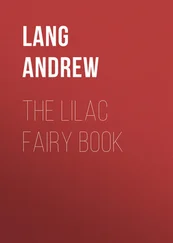Andrew Lang - The Red Book of Heroes
Здесь есть возможность читать онлайн «Andrew Lang - The Red Book of Heroes» — ознакомительный отрывок электронной книги совершенно бесплатно, а после прочтения отрывка купить полную версию. В некоторых случаях можно слушать аудио, скачать через торрент в формате fb2 и присутствует краткое содержание. Жанр: foreign_antique, foreign_prose, на английском языке. Описание произведения, (предисловие) а так же отзывы посетителей доступны на портале библиотеки ЛибКат.
- Название:The Red Book of Heroes
- Автор:
- Жанр:
- Год:неизвестен
- ISBN:нет данных
- Рейтинг книги:4 / 5. Голосов: 1
-
Избранное:Добавить в избранное
- Отзывы:
-
Ваша оценка:
- 80
- 1
- 2
- 3
- 4
- 5
The Red Book of Heroes: краткое содержание, описание и аннотация
Предлагаем к чтению аннотацию, описание, краткое содержание или предисловие (зависит от того, что написал сам автор книги «The Red Book of Heroes»). Если вы не нашли необходимую информацию о книге — напишите в комментариях, мы постараемся отыскать её.
The Red Book of Heroes — читать онлайн ознакомительный отрывок
Ниже представлен текст книги, разбитый по страницам. Система сохранения места последней прочитанной страницы, позволяет с удобством читать онлайн бесплатно книгу «The Red Book of Heroes», без необходимости каждый раз заново искать на чём Вы остановились. Поставьте закладку, и сможете в любой момент перейти на страницу, на которой закончили чтение.
Интервал:
Закладка:
Mrs. Lang
The Red Book of Heroes
PREFACE
'Life is not all beer and skittles,' said a reflective sportsman, and all books are not fairy tales. In an imperfect state of existence, 'the peety of it is that we cannot have all things as we would like them.' Undeniably we would like all books to be fairy tales or novels, and at present most of them are. But there is another side to things, and we must face it. '"Life is real, life is earnest," as Tennyson tells us,' said an orator to whom I listened lately, and though Longfellow, not Tennyson, wrote the famous line quoted by the earnest speaker, yet there is a good deal of truth in it. The word 'earnest,' like many other good words, has been overdone. It is common to sneer at 'earnest workers,' yet where would we be without them, especially in our climate?
In a Polynesian island, where the skies for ever smile, and the blacks for ever dance, earnestness is superfluous. The bread-fruit tree delivers its rolls punctually every morning, strawberries or other fruits, as nice, spring beneath the feet of the dancers; the cavern in the forest provides a roof and shelter from the sun; the sea supplies a swimming-bath, and man, in time of peace, has only to enjoy himself, eat and drink, laugh and love, sing songs and tell fairy tales. His drapery is woven of fragrant flowers, nobody is poor and anxious about food, nobody is rich and afraid of losing his money, nobody needs to think of helping others; he has only to put forth his hand, or draw his bow or swing his fishing-rod, and help himself. To be sure, in time of war, man has just got to be earnest, and think out plans for catching and spearing his enemies, and drill his troops and improve his weapons, in fact to do some work, or have his throat cut, and be put in the oven and eaten. Thus it is really hard for the most fortunate people to avoid being earnest now and then.
The people whose stories are told in this book were very different from each other in many ways. The child abbess, Mère Angélique, ruling her convent, and at war with naughty abbesses who hated being earnest, does not at once remind us of Hannibal. The great Montrose, with his poems and his scented love-locks, his devotion to his cause, his chivalry, his death, to which he went gaily clad like a bridegroom to meet his bride, does not seem a companion for Palissy the Potter, all black and shrunk and wrinkled, and bowed over his furnaces. It is a long way from gentle Miss Nightingale, tending wounded dogs when a child, and wounded soldiers when a woman, to Charles Gordon playing wild tricks at school, leading a Chinese army, watching alone at Khartoum, in a circle of cruel foes, for the sight of the British colours, and the sounds of the bagpipes that never met his eyes and ears.
But these people, and all the others whose stories are told, had this in common, that they were in earnest, though we may be sure that they did not go about with talk of earnestness for ever in their mouths. It came natural to them, they could not help it, they liked it, their hearts were set on two things: to do their very best, and to keep their honour. The Constant Prince suffered hunger and cold and long imprisonment all 'to keep the bird in his bosom,' as the old Cavalier said, to be true to honour. 'I will carry with me honour and fidelity to the grave,' said Montrose; and he kept his word, though his enemies gave him no grave, but placed his head and limbs on spikes in various towns of his country. But now his grave, in St. Giles's Church in Edinburgh, is the most beautiful and honourable in Scotland, adorned with his stainless scutcheon, and with those of Napiers and Grahams, his kindred and his friends.
"The grave of March, the grave of Gwythar,
The grave of Gugann Gleddyvrudd,
A mystery to the world, the grave of Arthur,"
says the old Welsh poem, and unknown as the grave of Arthur is the grave of Gordon. The desert wind may mingle his dust with the sand, the Nile may sweep it to the sea, as the Seine bore the ashes of that martyr of honour, the Maid of France. 'The whole earth is brave men's common sepulchre,' says the Greek, their tombs may be without mark or monument, but 'honour comes a pilgrim grey' to the sacred places where men cannot go in pilgrimage.
We see what honour they had of men; the head of Sir Thomas More, the head of Montrose, were exposed to mockery in public places, the ashes of Jeanne d'Arc were thrown into the river, Gordon's body lies unknown; but their honour is eternal in human memory. It was really for honour that Sir Thomas More suffered; it was not possible for him to live without the knowledge that his shield was stainless. It was for honour rather than for religion that the child Angélique Arnauld gave up amusement and pleasure, and everything that is dear to a girl, young, witty, beautiful, and gay, and put on the dress of a nun. Later she worked for the sake of duty and religion, but honour was her first mistress, and she could not go back from her plighted word.
These people were born to be what they were, to be examples to all of us that are less nobly born and like a quiet, easy, merry life. We cannot all be Gordons, Montroses, Angéliques, but if we read about them and think about them, a touch of their nobility may come to us, and surely our honour is in our own keeping. We may try never to do a mean thing, or a doubtful thing, a thing that Gordon would not have been tempted to do, though we are tempted, more tempted as we grow older and see what the world does than are the young. I think honour is the dearest and the most natural of virtues; in their own ways none are more loyal than boys and girls. Later we may forget that no pleasure, no happiness, not even the love that seems the strongest force in our natures, is worth having at the expense of a stain on the white rose of honour. Had she been a few years older, Angélique might have failed to keep the word which was extorted from her as a child, but, being young, she kept it the more easily. What we have to do is to try to be young always in this matter, to be our natural selves and unspotted from the world. Certainly some people are a little better, and so far a little happier, because they have seen the light from Charles Gordon's yet living head, and been half heart-broken by his end, so glorious to himself, so inglorious to his fellow countrymen. For his dear sake we may all do a little, sacrifice a little, to help the Homes for Boys which have been built to his memory, and to help the poor boys whom he used to help, making himself poor, and giving his time for them.
We read in the book, 'A Child's Hero,' how the brave Havelock won the heart of a little child who never saw him. She heard the words 'Havelock is dead,' and laid her head against the wall and burst into tears. Other children may feel the same devotion for these splendid people, for Hannibal, so far away from us, giving his whole heart and whole genius and his life for his wretched country, for men who would not understand, who would not aid him:
"Their old art statesmen plied,
And paltered, and evaded, and denied"
till their country was vanquished. Bad as that country was, for Hannibal's own sake we are all on the side of Hannibal, as we are on the side of Hector of Troy. 'Well know I this in heart and soul,' said Hector to his wife, when she would have kept him out of the battle, 'that the day is coming when holy Ilios shall perish, and Priam, and the people of Priam of the ashen spear, my father with my mother, and my brothers, many and brave, dying in the dust at the hands of our foemen; but most I sorrow for thee, my wife, when they lead thee weeping away, a slave to weave at thy master's loom and bear water from thy master's well, and the passers-by, as they see thee weeping, shall say, "This was the wife of Hector, the foremost in fight of the men of Troy, when they fought for their city." But may I be dead, and the earth be mounded above me, ere I hear thy cry and the tale of thy captivity.'
Читать дальшеИнтервал:
Закладка:
Похожие книги на «The Red Book of Heroes»
Представляем Вашему вниманию похожие книги на «The Red Book of Heroes» списком для выбора. Мы отобрали схожую по названию и смыслу литературу в надежде предоставить читателям больше вариантов отыскать новые, интересные, ещё непрочитанные произведения.
Обсуждение, отзывы о книге «The Red Book of Heroes» и просто собственные мнения читателей. Оставьте ваши комментарии, напишите, что Вы думаете о произведении, его смысле или главных героях. Укажите что конкретно понравилось, а что нет, и почему Вы так считаете.












